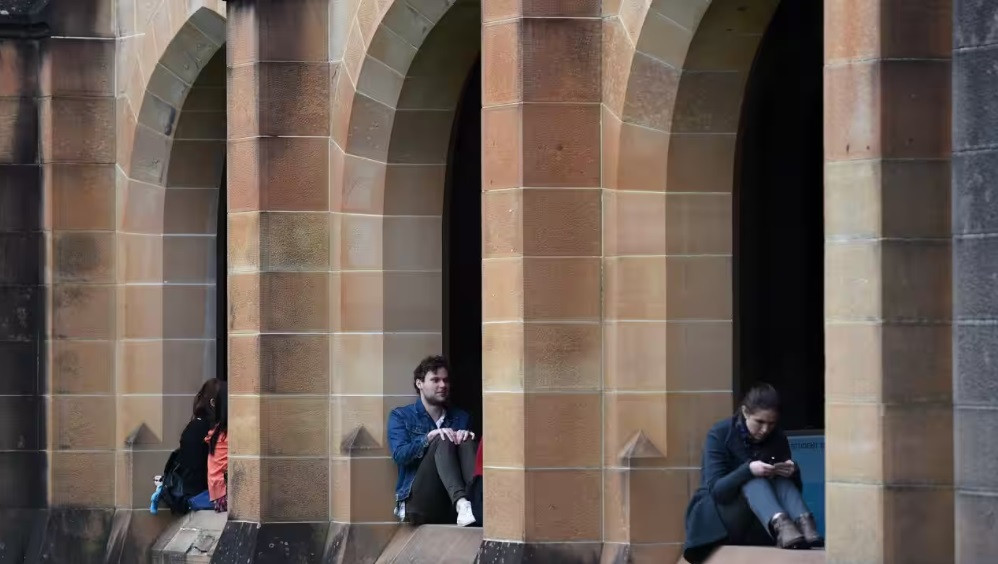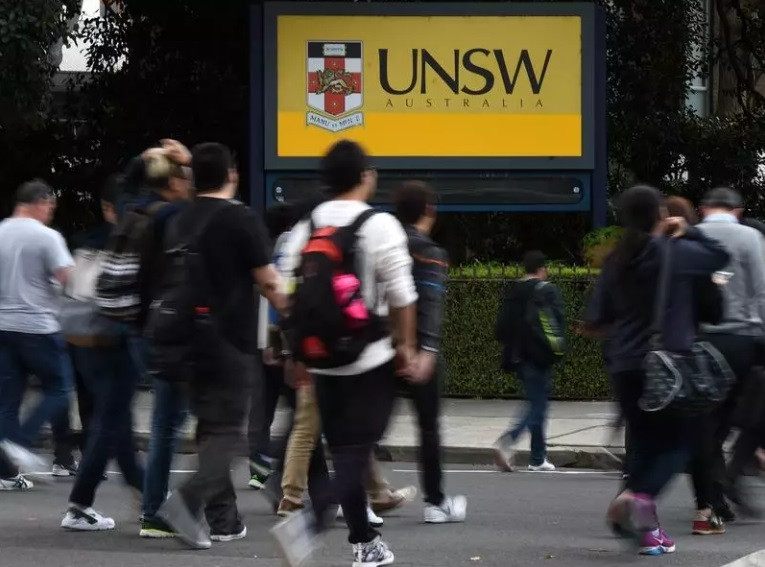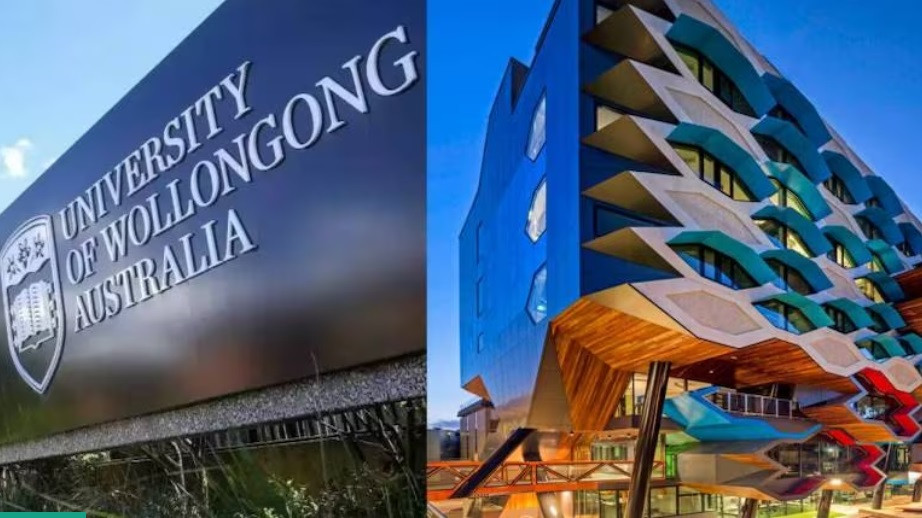The Australian Government has introduced a series of changes to international student visas to prevent cases of “rogue students”.

In December 2023, Australia announced a new visa strategy, ending the COVID-19 concessions to international students. Australia's new policy was introduced in the context of the peak of immigration at 510,000 in 2022-2023, of which about 270,000 are international students, causing consequences for the national society. The new policy is expected to bring the number of immigrants in Australia back to normal levels, helping to halve the number of immigrants to 250,000 people in the next 3 years. Currently, up to 39% of temporary immigrants to Australia are students or graduates. They are the second largest immigrant group in Australia after New Zealand citizens.
More stringent requirements for international students
Specifically, the new visa strategy includes a decision to cut the post-study work visa for international students from 4 years to 2 years. Masters students studying in other fields are allowed to stay for 3 years instead of 5 years as in the COVID-19 period.
In addition, the Australian government also prohibits students from transferring from a high-quality institution to a lower-quality institution during their studies. The financial proof required for an international student will also increase to 24,500 Australian dollars (395 million VND), equivalent to a 17% increase compared to before.
The Australian Government will also introduce a new “Genuine Student” test for all international students. This test will encourage students who genuinely want to study at an Australian university or education institution, rather than those who use the excuse of studying abroad to work. This test will replace the current mandatory Genuine Temporary Entrant test for visa applications.
In addition, the government is requiring visa agencies to ensure there is greater scrutiny of student visa applications and to tackle “visa hopping” – the practice of an individual applying from one visa to another to extend their stay in Australia. For example, a person may take the opportunity to switch from a 485 visa (a temporary visa for international students who have recently graduated in Australia) that is about to expire to a 500 student visa, which allows them to stay in Australia to study full-time for up to five years at an Australian Government-recognised educational institution.
The government will also increase the minimum English language requirements for student and postgraduate visa applications from 5.5 and 6.0 IELTS to 6.0 and 6.5 IELTS respectively, with the changes coming into effect in early 2024.
In addition to the higher language requirements, student visa holders also need to demonstrate that studying in Australia will help them in their future career. For example, a PhD candidate cannot apply for a student visa to study a degree in hospitality.
The government also imposes conditions during the study period, such as attendance and passing scores of over 80% for those with student visas, to limit those entering the country for other purposes.

Why is Australia tightening student visas?
In 2023, Australia witnessed a record increase in the number of international students with 655,000 people by the end of July 2023, surpassing the previous high of 634,000 international students set before the COVID-19 pandemic.
Experts say the international education sector in Australia is at risk of unsustainable development due to lack of real growth. It is clear that the growing trend of studying abroad in Australia does not bring economic benefits to universities in the country, but even makes them face losses. In 2023, up to 30 universities in Australia reported budget deficits.
International education analyst Keri Ramirez points out that this is partly because overall international enrolment has not fully recovered from the pandemic. It is still about 30,000, or 8%, lower than pre-pandemic levels.
Meanwhile, the profits universities receive appear to have been offset by discounts, with some 33 Australian universities offering scholarships to international students in the form of tuition fee discounts.
Before the pandemic, scholarships were primarily offered to attract exceptionally talented or disadvantaged students, Mr. Ramirez said. In 2017, few universities offered them as a tuition discount. But that has changed as more universities seek to gain a competitive edge by offering scholarships that reduce tuition by up to 30%.
Ramirez estimates that the cost of implementing a 20% fee reduction would be A$5.4 million for a university that charges regular fees and enrolls 1,000 international students a year. In reality, this cost is inflated, as most Australian universities enroll at least 2,000 new international students each year. Some universities enroll as many as 10,000.
“If a student gets offers from five universities and those five universities offer 20% scholarships, there is no competitive advantage. In microeconomic terms, when so many players are playing the same strategy, that strategy starts to be neutralized,” Mr. Ramirez explained.
Australia's tertiary education regulator has advised universities and colleges to comply and review their recruitment, admission and support processes for international students.
In a letter to universities, Peter Coaldrake, chief commissioner of the Tertiary Education Quality and Standards Agency (Teqsa), said a number of institutions were being investigated for issues such as unethical recruitment. Professor Coaldrake called for transparent admissions processes, with separate mechanisms for advertising and assessing students.
Is the new policy working?

After the new measures were implemented, the approval rate for international student visas in Australia fell to its lowest level in nearly 20 years. Not only that, but more international students are leaving Australia. In just 2 months of November and December 2023, 120,000 students left Australia, up from 27,310 in 2022.
In the six months to December 2023, 80.9% of all student visa applications were granted. This is down from 86% in 2022-23, 91.5% in 2021-22 and 89.9% before the pandemic in 2018-19.
“We have never seen this low before, in terms of rates and numbers. We have never turned away this many students,” said Abul Rizvi, a former deputy minister for immigration.
Eight Australian universities, both public and private, have recently cancelled offers to international students. Western Sydney University, Macquarie University, Wollongong University, Latrobe University, Deakin University, Central Queensland University, Edith Cowan University and Kaplan Business School have all sent notices to international students cancelling their offers. All fees paid by applicants will be refunded, the universities said.
According to Mr. Phil Honeywood - CEO of the International Education Association of Australia, it is difficult to point out which countries have the most students who are refused visas.
In some countries, Pakistan and Nepal, they also have difficulties in each country, so it cannot be affirmed that Australia's new visa policy has reduced the visa issuance rate for students from these countries.
Visa refusal rates vary between students from different countries, with approval rates for Indians and Nepalis falling from 74.2 and 65.2 per cent in 2022-23 to 60.8 and 47.8 per cent, respectively. For Pakistani students, the rate fell from 66.3 to 62.6 per cent.
Meanwhile, the rate of Chinese university students granted student visas remains stable at around 97%.
Mr Honeywood added that Vietnam and Malaysia were also among the countries affected by visa delays. “In recent weeks, I have also heard of quite a number of students whose visas have not been refused but whose approval process has been delayed. Many have not been able to start their first semester,” Mr Honeywood pointed out.
In addition to Australia, many other countries such as Canada, the Netherlands, and South Korea have also tightened visa regulations for international students.
With the goal of reducing the number of international students by about 35% by 2024, the Canadian government has announced new measures, including limiting access to work permits for foreign students and their spouses; stopping the issuance of post-graduation work permits to international students. The above measures will be implemented from September 1, 2024.
In South Korea, the Ministry of Education and the Ministry of Justice said that 20 language degree and certificate programs at 20 universities that were assessed as having poor student management, including Soonchunhyang University and Nambu University, will be restricted from issuing visas starting from the second semester of the next academic year.
In the Netherlands, 14 famous universities in this country are implementing a program to significantly cut the number of international students.